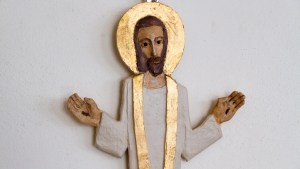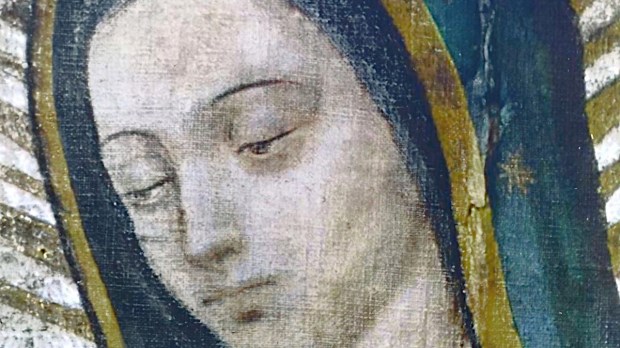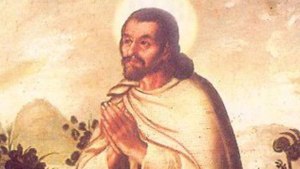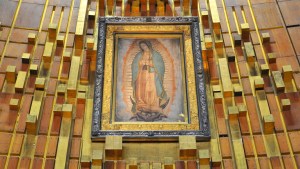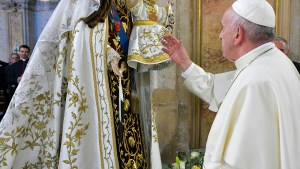When our children were infants, my wife would sit nursing each one of them in turn late into the night. Occasionally, I would wake up and stumble past on my way to the kitchen for a drink. In the darkened family room, I would see her with our baby. Sometimes she would be using one hand to hold the nursing baby and one to hold a book, or maybe the baby had fallen asleep, and she would be quietly knitting for a bit before trying to move the baby from her lap and into the crib. More often, she wouldn’t really be doing anything except looking.
Fingers lightly combing through fuzzy baby hair, ears attuned to a tiny little heartbeat, she would sit, quite happily, looking at her baby. She wasn’t looking for anything specific and didn’t expect any response. The sight of her child was enough. Each of our six children was a mystery to be pondered in the silence of her maternal heart. I almost felt like an intruder in the scene. I went past quietly so as not to disturb the peace that was so strong, I could feel it in my bones.
Advent asks us to look
This act of looking, or beholding, is central to the spirituality of Advent. Along with Mary, Joseph, the shepherds, the magi, the angels, and even the animals, we arrive to the side of the manger and adore the Christ child. We are invited to look with them, to search out a great mystery and consider what it means for God to have joined himself to creation. This is why all the scripture readings for Advent are so insistent that we stop whatever we’re doing, pay attention, and look. If we don’t, we might miss a great miracle.
I can’t help but find the search to be long and arduous. Getting to the side of Christ isn’t easy. A journey of faith like this takes place in the dark of night. I have to admit, as much as I love the seasons of Advent and Christmas, some years it can take a while for me to really warm up to them. I’m not always good at focusing on what’s important. I get distracted shamefully quickly. I look in the wrong places.
Like a mother gazing at her child
When I’m feeling lonely and melancholic, Christmas cheer rings false. I look around and all I see is activity that I either want no part of, like Black Friday shopping and terrible Christmas movies spamming the television even before Thanksgiving, or things that I know I ought to value more — like family time, generosity, and gratitude — but can’t because I feel numb.
In those moments when looking has become a strain, I can’t help but return to that image of my wife – a mother looking at her child. Perhaps Advent isn’t only about us managing to look in the correct direction and finally figuring everything out. Perhaps I’m not the looker like the mother. Maybe I’m the child. Mary is our Mother, and just like she gazed upon her child in the crib, she is also looking at each one of us.
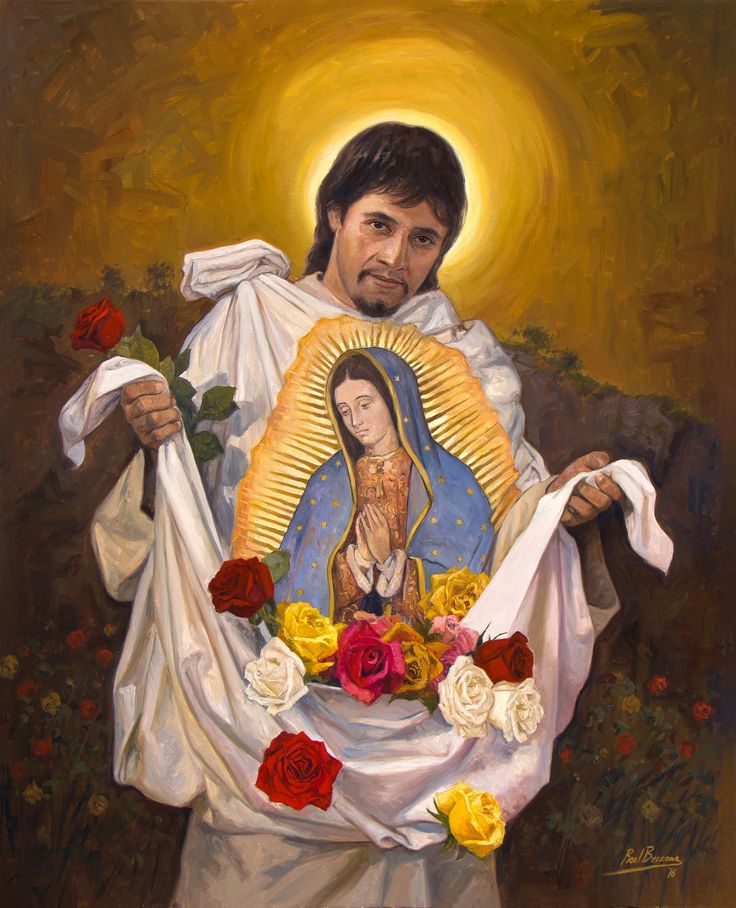
Our Lady appears
It’s rather fitting that the feast of Our Lady of Guadalupe takes place during Advent. In December of 1531, Our Lady appeared several times near Mexico City to a peasant named Juan Diego. The first time she appeared, her brightness made the plants and even the dirt shine like gemstones. Juan couldn’t take his eyes off her. From this first meeting, she sent him to the local bishop to get permission to build a shrine.
Juan went to the bishop and was denied. He failed. The next time he passed the hill where Our Lady had appeared to him, he hurried past and looked away. He didn’t want to see her. More importantly, he didn’t want her to see him. Maybe he was embarrassed because he’d failed.
She saw him anyway. As he tried to sneak past, she called to Juan. She’d been watching him the whole time. She didn’t mind that he hadn’t succeeded. He was still her beloved child. She encouraged him, saying, “Are you not in the crossing of my arms?” Then she gave him a sign to convince the bishop, directing him to roses blooming in the desert where they ought not to have been. Juan gathered the roses up in his shirt and ran to the bishop. He let them fall to the ground at the bishop’s feet, and only then was the real miracle unveiled. It was the image of Our Lady of Guadalupe imprinted onto his shirt.
The eye of Mary
That image, painted by no human hand, convinced the bishop. The shrine was built, and the image hung over the altar where it has lasted for almost 500 years without decaying. In recent years, skeptics have insisted on examining the image with all sorts of scientific instruments. One experiment took a magnified picture of Mary’s eye. What was reflected in the pupils was startling. There, in her eye, more lifelike than any human artist could paint, is an image of Juan Diego.
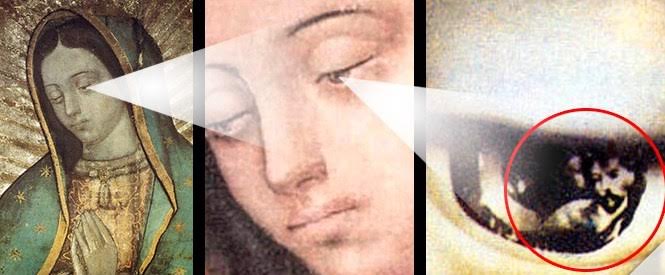
Our Lady is still looking at him. He is the apple of her eye, her beloved child even 500 years later. It seems that she will never stop looking at him.
The contemplative gaze of Our Lady holds so much. It indicates a strong bond and an intimate relationship. Our Mother doesn’t need to say anything. The silence isn’t awkward. She simply wants to be near us and see us. In that look is communicated a mother’s heart.
Always watching us
Deep into the night, far into the dark of Advent, Mary’s eyes remain on us. It’s late, perhaps her eyes are a tad bit tired, wondrous and questioning at what her child might become, concerned about our missteps, but always hers is the look of a warrior, a look as wide as the sky, a hearth of love, the sweetness of grace. It’s a look that recognizes how much we are capable of and that our birth into the world is a miracle beyond compare.
Our Mother is watching. Wherever we are, we are known and loved.
